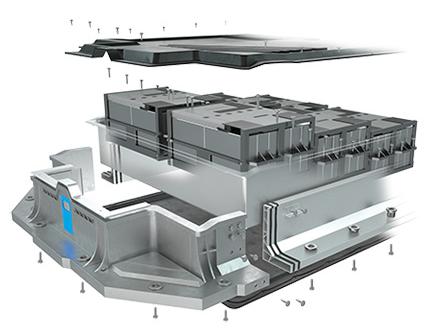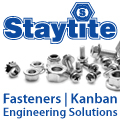
Posted to News on 20th Jun 2022, 12:00
Sustainability in fastening technology

Climate protection is becoming an increasingly urgent topic, and with it, the need to reduce carbon emissions comes to the fore in every aspect of our lives.
When it comes to the need to cut carbon dioxide output, particular attention is directed manufacturing industries – especially the automotive industry. But suppliers too need to play their part with new concepts, procedures, and products.
Sustainability is of extreme importance for the Arnold Group based in Germany. Sustainability is one of five strategic approaches employed by the fastener manufacturer – along with emobility, internationalisation, lightweight engineering, and digitisation.
Climate protection and the sustainable use of resources have long been firmly founded principles for the company based in the south of Germany, well before the increasingly forceful climate change debates of today.
This is why Arnold has set up the ACO2-Save initiative. With this initiative, customers and users are actively supported to reduce CO2 emissions by designing and using fasteners and cold formed parts sustainably. A carbon calculation takes place as early as the development process.
Using its own CO2 calculator – developed in-house – Arnold is able to determine the product carbon footprint for the part the customer is enquiring about, and then can work with the customer to improve it. The aim here is that at the end of the development process, the product is technically of high quality, and optimised with regard to costs and its CO2 footprint.
To curb CO2 emissions as early as the development stage, for example by avoiding making unnecessary samples and protogypes, Arnold’s developers make use of digital forecasting tools such as FEM analysis and their own prediction program, developed inhouse. This greatly reduces the number of feasible variants thus saving time, money, and CO2.
However, the greatest savings are made by using innovative fastening and cold-forming technologies. For example, working with its customers, the company analyses options for changing the parts production technology – including whether parts that until now had been machined, might be more efficiently produced as cold-formed parts. It is also possible to check whether any existing threaded screws could be replaced by thread-forming screws, completely doing away with the need for thread-cutting tools and the emissions they cause.
A further option is to reduce size by using innovative fasteners, for example by replacing an M5 screw with an M4. And finally, innovative fastening systems help to reduce weight – especially when it comes to joining multi-material mixes – and that ultimately means a reduction in the vehicle’s overall emissions.
To illustrate exactly how this ACO2-Save initiative is working, one project involved a special screw made of aluminium and implemented in a customer’s component, reviewed with regard to technology, cost and CO2 emission. A ‘Conform Next’ screw was developed as an alternative. Due to its engineered design, it proved suitable for use in components with bigger diameters, longer components, more complex geometries and heavier weights.
The volume of the part used previously was 8,733mm3, each item weighed 23.5g, and was machined in the traditional way. A turned part blank was used on the production line and the volume of that was 5,830m m3, weighing in at 69.2g each item.
Arnold’s developers carried out an ACO2-Save analysis and changed the part to a formed part on the Conform range. Following the improvement the volume of the formed blank was 9,135 m m3 and each one weighed 24.82g. In other words, the forming process requires much less material input since there is very little wastage during the production process.
Besides a considerable improvement in costs created by lower materials requirements for the cold-forming process, this also of course has a considerable effect on the product carbon footprint for this special screw. By reducing the working weight, creating less waste, and thus making the production process more efficient, it was possible to reduce all the CO2 emissions created by this screw by 45 per cent.





